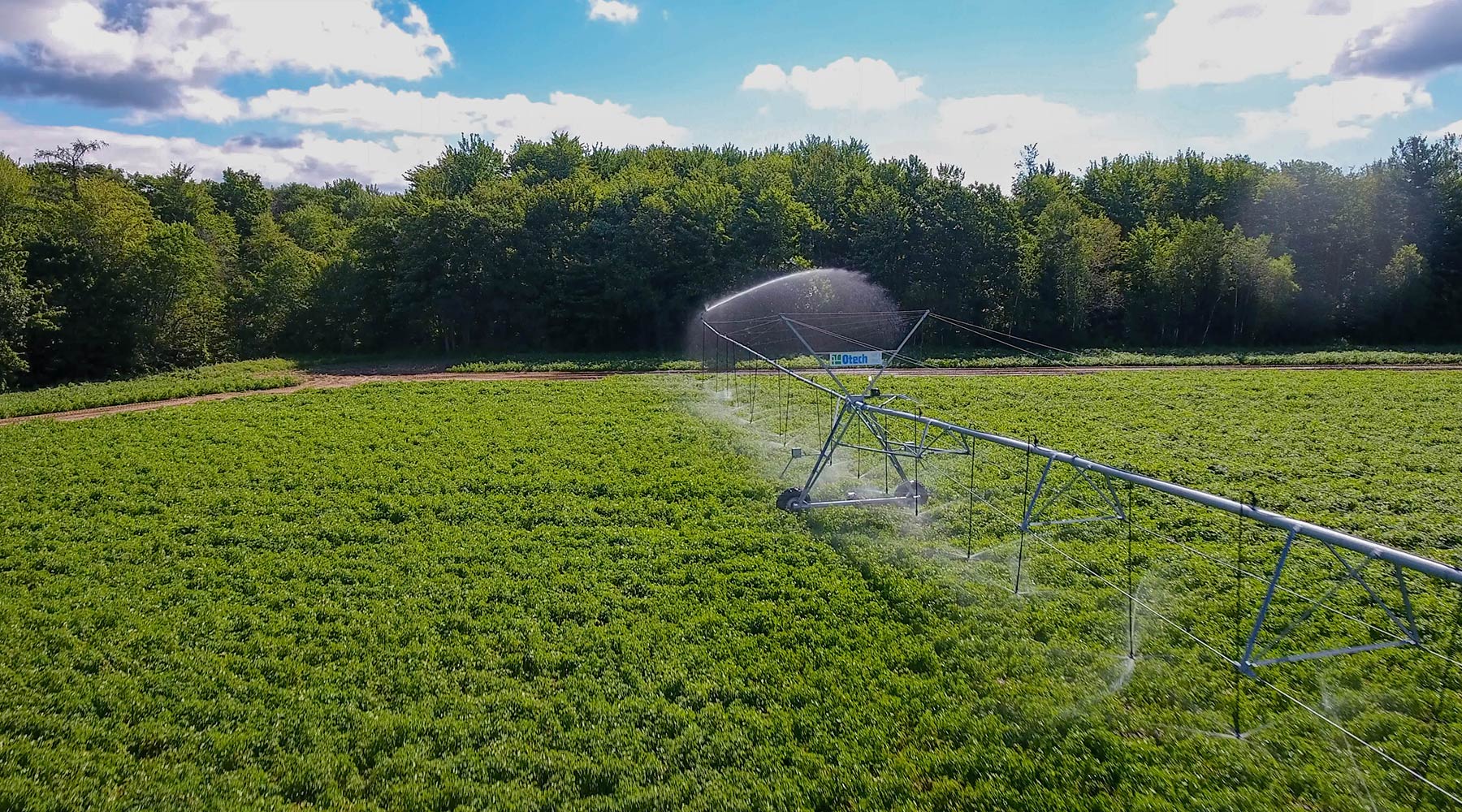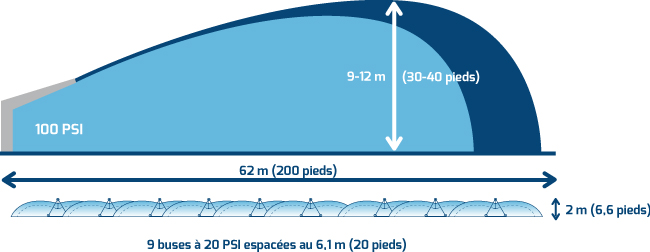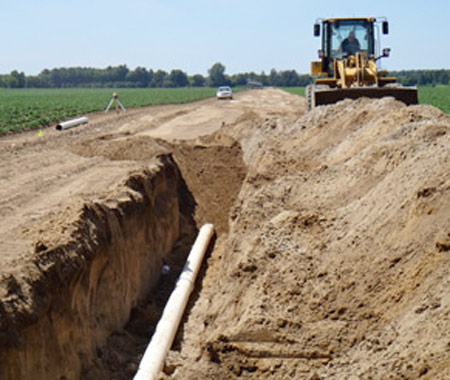
EXPERTISE
Riego is a Joliette based company founded by a bioressource engineer. It is located in a former pioneer region in tobacco production, where irrigation has always been a formality. Whether your project is electric, hydraulic or agronomic, our team and our stakeholders will always find a way to make it possible, whatever it takes!
Offered services
DESIGN
Irrigation systems designs from the pump station to the soil humidity control, depending on your needs;
REPAIR
Repair of any brand of electric pivots and linears;
MAINTENANCE
Maintenance: Start-up and wintering of irrigation systems.
LOW PRESSURE IRRIGATION
Low pressure irrigation distinguishes itself from traditional gun irrigation by lowering the pressure to the minimum required. To do this, we lower the range of the sprinklers, but multiply them, as shown below;

BASIC CONCEPT
Irrigation must be adapted to the plant itself. As it is a living organism, like humans, we have to understand it and adapt the way we water it. To do so, we should increase the number of irrigations while lowering the amount of water spread. Supplying too much water will stop the plant from growing; there are adjustments to make depending on what kind of soil you are harvesting, which type of plant is cultivated and the stage of development it has reached. Every plant has its own characteristics, but we know that they all prefer a small amount of water every day rather than a lot of water once a week, especially in critical moments of its development. So, pivots and linears work in that exact way helping the producers adapt to the real needs of the plant.

-
Soil works like a sponge:
- When saturated: soil won’t absorb more water, which will cause it to drain itself like when you take a sponge out of a bucket of water.
- At field capacity: there is no longer a natural flow to the drains, but water is easily assimilated to the roots.
- At the wilting point: there still is water in the soil, but it’s not available for the plant, just like when you squeeze a sponge.
- In order to know the soil water reserve and what strength is required to collect it, the use of a tensiometer is recommended.
Soil works like a sponge:
- When saturated: soil won’t absorb more water, which will cause it to drain itself like when you take a sponge out of a bucket of water.
- At field capacity: there is no longer a natural flow to the drains, but water is easily assimilated to the roots.
- At the wilting point: there still is water in the soil, but it’s not available for the plant, just like when you squeeze a sponge.
- In order to know the soil water reserve and what strength is required to collect it, the use of a tensiometer is recommended.
